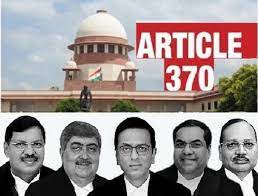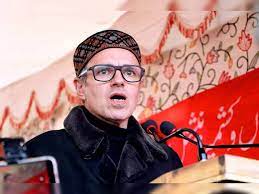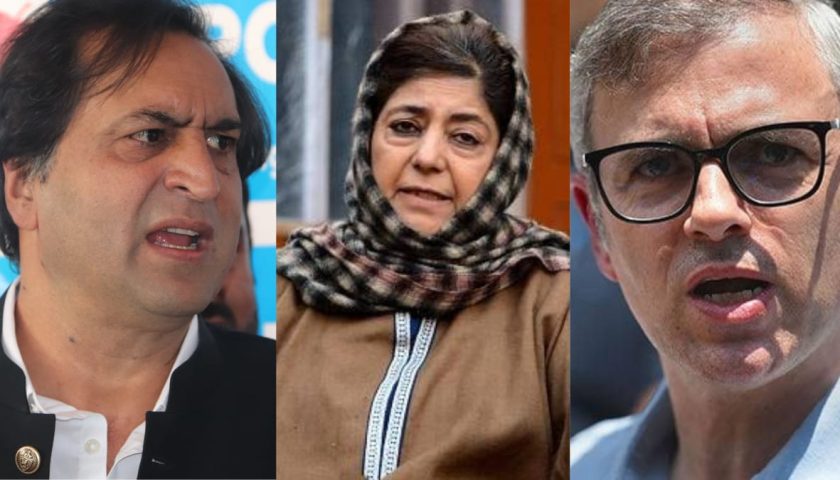A five-judge bench, led by CJI D.Y. Chandrachud, will hear petitions challenging the Presidential Order of August 5-6, 2019, and the Jammu and Kashmir Reorganisation Act, 2019.
In a move that will address lingering uncertainty surrounding the legality of the Modi government’s decision to scrap Jammu and Kashmir’s special status, a five-judge constitution bench of the Supreme Court is finally set to schedule hearings on a batch of 23 petitions challenging the August 2019 move.
The matter was last heard in March 2020 before going in to limbo. The court today said that a five-judge bench, led by Chief Justice D.Y. Chandrachud, will meet on July 11 to “pass directions” – i.e. schedule hearings on challenge to the Presidential Order of August 5-6, 2019, and the Jammu and Kashmir Reorganisation Act, 2019.
Normally, when a constitution bench is set up, it first issues directions after assessing how long the matter is likely to take and how many lawyers need to be heard. In all likelihood, say legal experts, the actual hearings will be held sometime in August.
Justice Sanjay Kishan Kaul, Justice Sanjiv Khanna, Justice B.R. Gavai, and Justice Surya Kant will be part of the bench. Since Justice Kaul retires at the end of December, the bench’s verdict will have to be delivered before then.
The Presidential Order of August 5-6, 2019 blunted Article 370, which accorded special rights and privileges to the people of J&K since 1954, in accordance with the terms on which the erstwhile princely state acceded to India in 1947. The special status was effectuated by the insertion of Article 35A via a Presidential Order in 1954 on the advice of the Jawaharlal Nehru Cabinet.
Following the reading down of Article 370 in August 2019, the Jammu and Kashmir (Reorganisation) Act of 2019 came into effect and resulted in the bifurcation of the J&K state into two Union territories of J&K and Ladakh. In a day, J&K lost its status as a state and became a Union territory. Before the changes were effected, Jammu and Kashmir had been put under lockdown.
The petitioners say the move by the Government of India was “unilateral”, and did not have the “consent of the people of [J&K]”.
When the matter was heard last, the apex court declined the petitioners’ plea to refer the matter to a larger bench.
The Supreme Court has – more than on one occasion, since the time of former CJI Ranjan Gogoi – said it will ensure an ‘early’ listing of the petitions. However, the issue has been pending, even four years after the reading down of Article 370. Last year, on April 25 and September 25, former CJI N.V. Ramana agreed to list the matter for ‘early’ hearing but nothing came of it.
The matter was also mentioned before CJI Chandrachud in February this year, when he had said that he would “take a call” on listing, according to Bar and Bench.
Though the Modi government said it acted the way it did in order to “fully integrate” Jammu and Kashmir with the rest of India, J&K is the only region in the country where people are governed not by elected representatives but by an administration that reports to the Union home ministry. This has been the situation for five years now. The erstwhile state’s assembly was dissolved and Governor’s Rule was imposed in June 2018.
PDP, NC welcome court’s move
The Supreme Court’s decision to finally take up the matter has been welcomed by the Peoples Democratic Party and National Conference.
Former J&K chief minister Mehbooba Mufti, who heads the PDP, tweeted, ‘Welcome Hon’ble SC’s decision to finally hear petitions pending since 2019 challenging the illegal abrogation of Article 370. I hope justice is upheld & delivered for the people of J&K. The SC ruling on Article 370 maintained that the provision can be abrogated only on the recommendation of the J&K constituent assembly.”
Former chief minister Omar Abdullah of the NC tweeted: “Finally the bench is constituted. I look forward to the hearings beginning in right earnest now”.
Salman Soz of the Congress said, “If the Supreme Court carefully assesses the actions of August 5, 2019, I have no doubt that it will conclude that the Modi Govt engaged in blatant subversion of Constitutional provisions, unlawfully disempowered the people of J&K, and dealt a blow to Indian democracy.”





